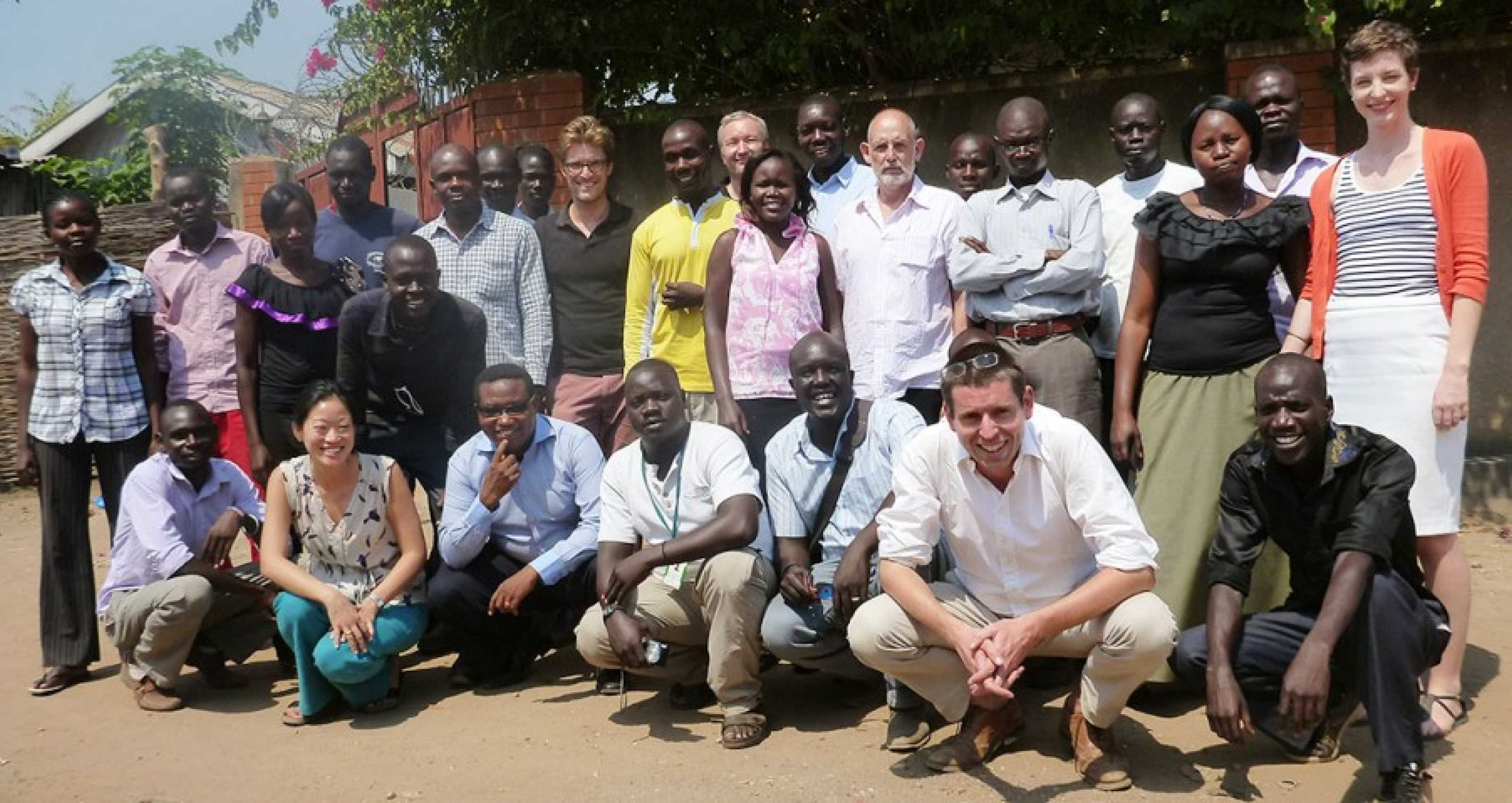Better talent development is better business for development consultancies
Management consultancy companies’ assets, and revenue streams, are the brains, skills and knowledge of their staff.
All things being equal, the brighter the staff you hire, the more useful training and experience you give them, and the better they work together (common doctrine and praxis), the more you can charge for them – and the more you ought to pay them. That is true of all consultancy companies, from sole traders to McKinsey. It also applies to both international staff and staff from the country you are working in; clearly, the more work can be done by staff from the host nation, the better, because more of the money stays in the local economy, and so do the skills and experiences they get.
By contrast, if a company only ‘body-shops’ – hiring ‘experts’ for individual jobs – then, in the long term, it should only expect to earn the kind of margin that a shop or an exchange might, not what a ‘talent factory’ might. Sometimes not all ‘experts’ are as expert as they seemed from their CV. And not all ‘experts’ necessarily work equally well with other ‘experts’.
[For the avoidance of doubt, this is not to say that scale is bad of itself, or that there aren’t serious and responsible businesses in the DFID top ten suppliers: there are, and we are proud of the work we currently do with them].
Charlie Goldsmith Associates – talent development
Charlie Goldsmith Associates has always been more involved than most in ‘talent development’: Charlie started off in South Sudan in 2006 as a volunteer with the church, having previously worked for the British railways, and then Booz Allen, a management consultancy company. Around him over time have gathered a mixture of:
- Bright young international generalists, picked up from NGO and church jobs, consultancies in Europe, ODI Fellowships or occasionally straight out of university
- South Sudanese education, health and public administration experts, some retired from government, some needing more income than they could get as church volunteers or staff
- Bright and active young local staff, some graduate, some not – many of them talent-spotted from jobs that didn’t give an opportunity for all their talents – data entry, driving, even guarding!
For-profit and for good
We are set up as for-profit company because we think that:
- Is a good way to keep us honest: if we do a good job, we sell work and perhaps make profit; if we don’t, we’re out of a job
- A way to build up the funds to be able to take risks and invest with a long term view, in a way that is harder for NGOs that are always worrying about where the next grant is coming from
We’ve also been lucky that our work on Girls’ Education South Sudan meant that for much of 2013-2015 we were running a large data entry operation, which was a great opportunity to spot people who could use IT well, work fast and accurately, had an eye for systems, and were capable of much more than data entry.
Today, three quarters of those regularly working for us are from the countries we work in, and we have plans to increase that.
We also have some new plans for talent development, about which we are quite excited – hence this rare blogpost.
1. Charlie Goldsmith Associates International Fellows
International development work is generally best done by people of the country in question: there is no shortage of talent in and from any of Somalia, South Sudan, DRC, or any other FCAS place you might name, only the conditions in which it might be deployed and developed.
But there is still a role in development work for people from the Global North if they have the right skills, the humility, understanding and connection to apply them well where they are sent, and hopefully the intention to continue to apply them in this work for the medium term. That doesn’t just mean water engineers and hard-bitten Treasury hands, it can also mean the high-achieving, high-potential generalists/fast-streamers that any organisation, the world over, would be glad to have.
But for those bright young people, getting into international development is not always straightforward: it can seem unwise to set off to a fragile state with no particular fixed plan, as many of those now working in this sector first did; getting to, and staying in, some of the places we work is expensive even if you do have systems already set up, let alone if you’re doing this the first time, straight out of College.
This Autumn, we are therefore going to be looking to hire up to six CGA Fellows to send to South Sudan, who will be either immediate or fairly recent graduates.
We would like people who will be useful and fungible for the projects we work on. We will want to see excellent thought and writing, good excel, good attitude, good aspiration, and a good degree (or expectation of one) in any credible subject.
International development work needs to be informed by knowledge of, and some degree of integration in and affection for, the community in which you work. So part of the deal will also be working – a serious number of hours every week – in community work we are involved in, including the Confident Children out of Conflict centre, the All Saints’ Cathedral Choir, and plans about school music and sport in Juba, and bringing some distinctive excellence to bear there: we are specifically interested in choral scholars, organists and keyboard players, people active in other arts fields, outstanding sportsmen and women.
In short, if you think you’ve got all the impressive stuff that it takes for the Civil Service Fast Stream, Teach First, a big regiment, consultancy, or the big graduate schemes, but your vision is international, medium term, focused on the poorest of the poor, then we would like to hear from you.
2. Get the North to the South
We specifically would like to hear from people finishing at Universities in the North of England, and from people who come from the North of England, and we have retained our friends at Aid Works (www.aidworks.org.uk), who run the Get the North to the South, scheme, to help us find the best people from this group, which is under-represented in international development work, not for lack of talent, but for lack of pathways and contacts. Again, we think being for-profit works quite well in this area: this is talent no-one else is tapping; we want that talent, and have the incentive to find it, develop it, and promote it.
3. Bringing the South back to the South
We would also specifically like to hear from young members of the diaspora from places where we work, including South Sudan, Somalia, Nigeria, DRC and Sierra Leone, who would like to take back ‘home’ the education and skills they’ve acquired. But we want to be really clear that you will be judged to the same standards as the rest of our Fellows: we want international quality, not precious types.
4. Junior fellows – Summer 2015 and Summer 2016
We are also interested in hearing from people with the potential to come onto this scheme in the future, with a view to joining us as ‘junior fellows’ in Summer 2015 or Summer 2016. And the same point about Universities in the North of England, and those from the North, applies.
5. Charlie Goldsmith Associates South Sudanese Fellows
We are proud of what we have done in recruiting and developing South Sudanese talent: but much of that has been done through promoting staff from clerical or support positions to more responsible roles.
Now we want to start going after talent at source. We are therefore going to be recruiting a similar number of South Sudanese fellows direct from universities, with a particular focus on involving people in research work while they are still at University, so that there is a two-way street between what we as an employer are looking for and what universities are producing.
How to apply
More details will go up on www.charliegoldsmithassociates.co.uk/recruiting soon. But if you, or someone, you know, is interested in any of these roles, please do send us a CV and covering letter to @email. Please keep each of them to two pages or less.
A different approach to international development consultancy
We are trying to offer a different approach to international development consultancy:
- A distinctive and consistent doctrine, approach and quality of product, not ‘no worse than the next body-shop’ or ‘who are you today, who am I today’
- Majority host nation staff, at all levels, not majority grizzled wazungu
We think the results – like www.sssams.org, with 1m South Sudanese children enrolled individually this year and their school attendance tracked daily, and supporting grants to over 3,000 schools, and transfers to over 100,000 girls (delivered as part of a consortium led by BMB Mott and with UK Aid funding), or like www.hrisrss.org, an open-source online real-time HR system for FCAS states (delivered as part of a consortium led by Crown Agents, with UK Aid and partner funding) – speak for themselves.
But to get these results at scale those who buy international development consultancy are also going to have to adapt. There is no point firms trying to sell bright, brilliant, well-trained young South Sudanese, Somali and other host nation staff, used to working as a team, some clients – and no major donor should feel too self-satisfied on this – insist on prescribing in detail the structure of a ‘team’ of experts, and demanding 20 years’ experience in a narrow vertical field from every one, or if donor government procurement departments believe ‘no-one got fired for hiring a Big 4 Accountant’.
In short, we want to be African leopards, and to hunt wherever clients will give ‘fat cats’ less encouragement!


